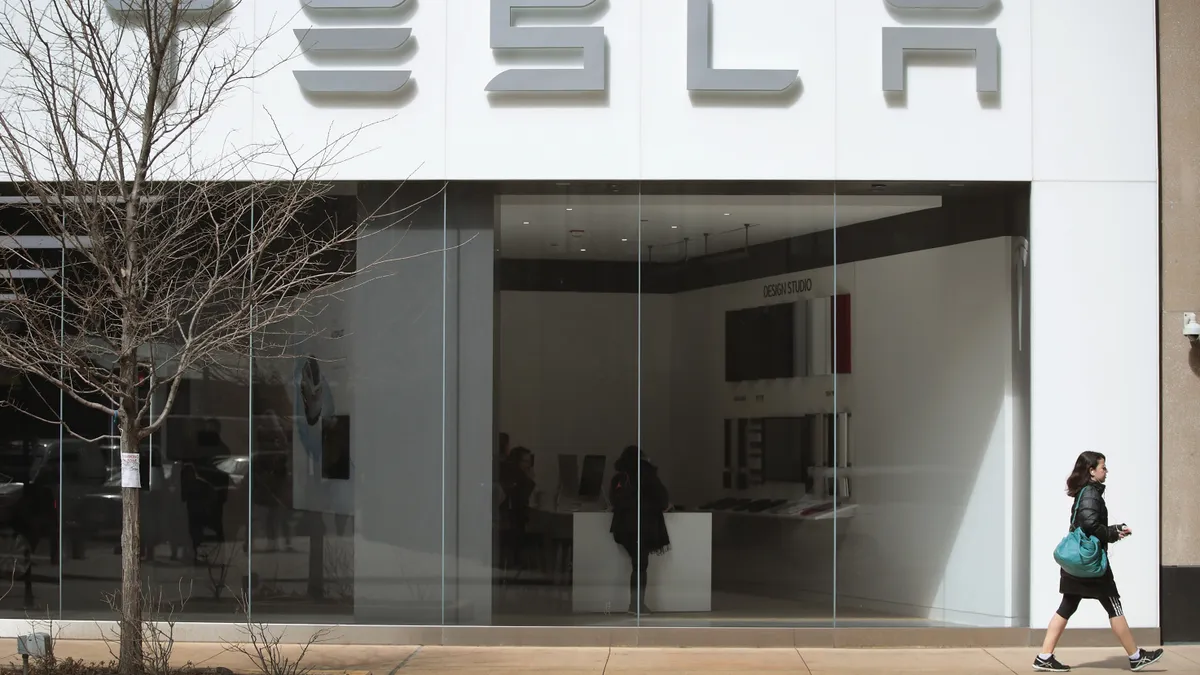Tesla and its CEO Elon Musk paid tens of millions in fines over the past two years as they battled with the Securities and Exchange Commission over the appropriateness of Musk's tweets about company performance.
In a Wall Street Journal report based on Freedom of Information Act (FOIA) requests it filed with the SEC, the publication said the agency called out the company and its chair multiple times for violating a 2018 order requiring Musk’s tweets to be vetted by Tesla lawyers if they touch on production figures, new business lines or the company’s financial condition.
The settlement stemmed from a 2018 tweet in which Musk drove up the company’s stock price 10% by suggesting a buyout was under discussion. The SEC said the tweet constituted fraud and required Tesla and Musk to each pay a $20 million fine to settle it.
In communications to the company since the settlement was reached, the SEC cited several instances in which Musk tweeted out information that appeared to be violations of the agreement without first getting the communications approved by company lawyers.
The company failed “to enforce these procedures and controls despite repeated violations by Mr. Musk,” Steven Buchholz, a senior SEC official, said in a 2020 letter to the company. “Tesla has abdicated the duties required of it by the court’s order.”
Problematic tweets
In one tweet, Musk told his followers the company was “spooling up production line rapidly. Hoping to manufacture ~1000 solar roofs/week by end of this year.”
The tweet required attorney vetting because it touched on “production numbers or sales or delivery numbers,” the SEC said.
Tesla argued attorney vetting wasn’t required because the tweet was aspirational.
Another tweet touched on the company’s stock valuation. “Tesla’s stock price is too high imo,” Musk said.
When the SEC called out the tweet, the company said it didn’t require vetting because it was a personal opinion.
The SEC in response said the tweet addressed the company’s financial condition, a topic subject to the policy.
No carve-outs
The SEC broadly accused the company of acting as if the policy had exempt areas.
“In the face of Mr. Musk’s repeated refusals to submit his covered written communications on Twitter to Tesla for pre-approval, we are very concerned by Tesla’s repeated determinations that there have been no policy violations because of purported carve-outs,” the SEC said.
The agreement requiring attorney vetting is unusual. The SEC saw it as a way to improve Tesla’s corporate governance, but to Alex Spiro, one of Tesla’s outside lawyers, it has become a way for the regulator to hold Musk to an unreasonable standard.
“The serial nature of these investigations leaves us gravely concerned that the SEC is targeting Mr. Musk for an improper purpose,” Spiro said in a letter to the agency.
In other communications to the agency, the company’s lawyers complained the agreement was being used to “harass Tesla and silence Mr. Musk” with investigations that “overlapped endlessly.”
Jill Fisch, a University of Pennsylvania law professor, told the Journal the back-and-forth between the company and the regulator wasn’t surprising given the relatively new terrain Twitter poses.
“It’s hard to draft a court order that allows for some communication but also potentially constrains or monitors it,” Fisch said. “The first time out, it’s going to be an imperfect tool.”














